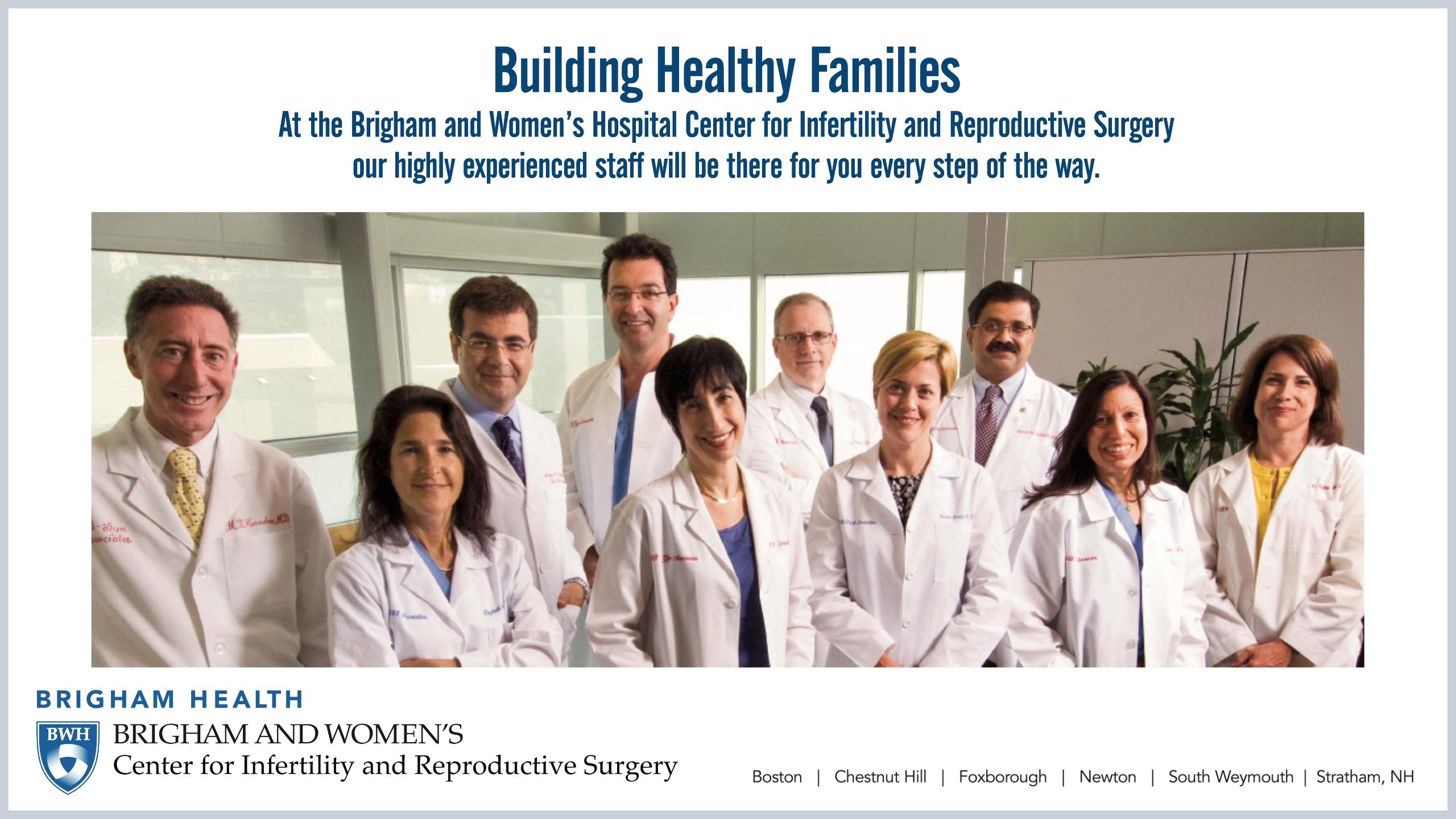Forever Grateful

It was just a day after my emergency hysterectomy.
My husband came into my hospital room, leaned over to give me a kiss and asked how I was feeling since the surgery. After hearing about how I was doing post-op, he sat down on the edge of my hospital bed and said quietly “I was thinking.”
“What?” I asked, still exhausted from my lack of sleep on the noisy hospital floor.
“Why don’t we use a gestational surrogate to try to have another baby? We have eight frozen embryos from our last few IVF cycles, and we can transfer those into the surrogate.”
I groaned thinking about the complexity of using a gestational carrier and couldn’t fully process what he was saying. I hadn’t heard much about the process aside from hearing about a few movie stars who had utilized surrogacy. I told him I was not ready to even think about how we would build our family right now and that the idea of gestational surrogacy seemed very daunting. He agreed to drop the subject and just focus on my physical and psychological healing from the very emotional experience of having an emergency hysterectomy in my mid-30s.
Months passed and I began to think about my husband’s idea of surrogacy a bit more.
I started to read anything I could find about how this process would go and what is involved. After careful consideration and weighing many alternatives to having a child, we opted to pursue using a gestational carrier in the hopes that one of our eight embryos would stick and our dream of having a child would come true.
While several family members offered to carry a child for us, we chose to use an agency to move forward with selecting a carrier. Because we had frozen embryos, we did not need sperm or egg donation.
The surrogacy process involved many steps, starting with reviewing a number of gestational carrier bios that we were given by the agency. We were told the surrogate should be a healthy woman between the ages of 21 and 42 (preferably younger than 35), with a history of a normal pregnancy and full-term delivery without complication. After careful selection, we chose our gestational carrier.
The next step was a visit to her home, a meeting with her husband and children, and several conversations with her about why she wanted to be a surrogate (a dream of hers all her life).
After all of this, we all agreed to move forward. It all felt very right yet still very scary.
We went through the required tests to ensure our carrier was physically and psychologically ready to go through the process, and she passed with flying colors. We had completed the necessary administrative details, and then the process could begin. She prepared her body for transfer through the medicine she was instructed to take, and we waited with much anticipation.

After one failed attempt, we received the incredible news that the second transfer had worked, and she was pregnant. My husband and I were over the top excited. Yet I still had butterflies as this process was not easy for me for so many reasons.
One major hurdle was I had to relinquish all control of this pregnancy, as it was becoming a reality in my mind that someone other than myself would oversee taking care of my baby for the next nine months. The ensuing months, though exciting, led to a lot of anxiety. How is she doing? Is she eating well? Is she being careful during this pregnancy? These thoughts ran through my mind a lot. We selected a carrier who was close by in the hopes that we would have enough contact to see how things are moving along. This worked out well as I attended every doctor’s appointment, and we spoke weekly about how she was feeling.
As the pregnancy progressed, my carrier and I became very close. With time, I started to realize that I didn’t have to micromanage her. She was doing absolutely everything to ensure a healthy pregnancy, in the same way I would carry a baby.
The realization that my gestational carrier was taking care of my baby exactly the way she would her own was incredibly powerful.
It was clear that the baby she had agreed to bring into this world was being completely well cared for with love as he slowly grew inside her womb.
My initial fears of how this unique experience would go began to be replaced by unwavering excitement and an unexplainable appreciation for what my carrier had chosen to put her body through for those nine months.
When my son was born my emotions were powerful. After a 12 hour, very difficult delivery, my son had finally arrived. My tendency to burst into tears at just the thought of how my son was brought into the world was one that was hard to break that year after his birth. My feelings of gratitude for my carrier were so incredibly intense, and those powerful feelings of gratitude will always remain.
Now, 17 years later, my carrier and I are still very close. She moved out of New England a few years ago, but when she returns to visit, we make every effort to get together. We both are determined to stay close to each other regardless of the physical distance, and we never want the bond to fade. We send each other birthday and Christmas gifts. We update each other on our families, work, our husbands, and life. We both know that this special bond between us is one that will continue throughout our lives. It is a relationship like no other, and I feel incredibly blessed to have gone through this experience.
A common myth from many is that the gestational carrier is somehow related to the baby she carries or shares blood with the baby. In actuality the gestational carrier does not share any DNA with my son as the embryo was mine and my husband’s. I began to explain this to my son as he got older and could understand better. Starting the explanation by simply stating that there is no genetic relation to my surrogate was my very simple message. Surrogacy is not common and generates a lot of questions if I choose to share that my son was born this way. I always mention how truly blessed I feel to have brought my son into the world through a gestational carrier.
My carrier always wanted to carry a baby for someone and has two children of her own with no pregnancy complications. Our agency required that she have no past pregnancy complications and a child (or more) of her own. She tells me that she feels so lucky to have gone through this incredible experience, as do I. My son, still too young at the age of 15 to really understand the situation completely, also recognizes that he is incredibly lucky to be brought into this world through surrogacy. He realizes what a very special human being my carrier is, and she did something for us that is powerful beyond words.
There have been so many moments over the years when my carrier and I prepare to say goodbye when we both often get teary eyed as we reflect on the powerful and emotional experience we shared. The words that seem to always pop into my mind and often out of my mouth are “How will I ever thank you?”
Her response every time is a simple one. “You already have”, she says with a smile.
I realize now that I really don’t have to keep thanking her for what she has done. Her frequent comments of how thankful she is to have gone through this powerful experience remind me of how amazing she viewed her experience of being a gestational carrier as well.
The many memories we both have etched in our minds of this incredible journey together bringing my son into the world won’t disappear.
I am forever grateful.

If you are looking for support and resources around this path to parenthood, check out RNE's free, virtual Surrogacy Group which is open to people at any stage of building a family through the gestational carrier/surrogacy process, from decision-making to parenting.

